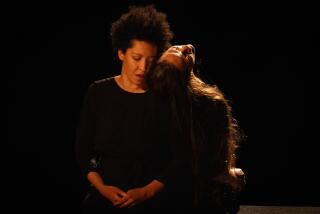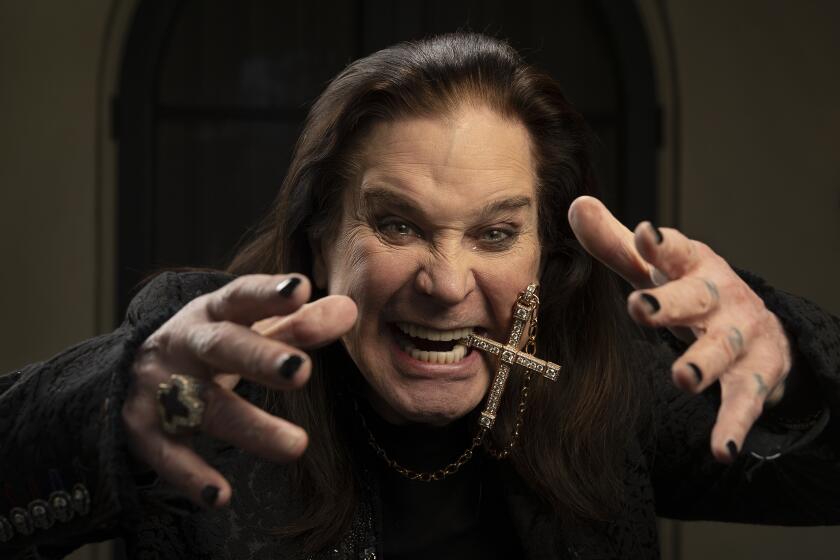The Next Sarah Vaughan? . . . Maybe
- Share via
Too often in recent years, one singer after another has been tossed prematurely into the record marketplace, touted as the next Sarah Vaughan or the upcoming Ella Fitzgerald. More often than not, these artists are too young and immature for prime time and the attendant hype.
The case of Nnenna Freelon (despite the spelling, pronounced “Nee-na”) is somewhat different.
About 35, she has spent most of her adult life in North Carolina, raising a family and working locally. This has given her time to hone her craft, ensuring that her record debut, “Nnenna Freelon” (Columbia), would be more than just another flash in the pan.
“Sarah by Starlight” might be an apt alternate title for the album, since the Vaughan tonal resemblance is inescapably present. Freelon, however, does find new avenues to old songs.
Freelon’s “Skylark” opens with the bridge, sung wordlessly. “Yesterdays” benefits from a swinging up-tempo treatment, though here she has a tendency to shout, making excessive alterations in what was originally a perfect melody.
Another initiative is Freelon’s vocal duet with drummer Grady Tate on “I Fall in Love Too Easily.” Standards like this 1944 song dominate. However, there is one relatively recent item, Ivan Lins’ “The Island” (which Vaughan helped to popularize): This brings out Freelon’s lyrical side gracefully, showing the value of those years spent developing a sense of maturity.
Freelon includes three original compositions. On this level she reveals no conspicuous talent. Her socio-ecological “Future News Blues” at least conveys some intriguing lyrical ideas, but “Changed” never really tells us in what ways she has changed, and “This Little Light” is a lightweight, not related to the old gospel song.
One aspect that must be taken into account is the extraordinary support offered to Freelon: first by Ellis Marsalis, who steered her to Columbia Records, and also by arranger Bob Freedman, whose charts contribute invaluably to the success of the more valid numbers. Some tracks feature a large string section; others make admirable use of soloists--Marvin Stamm, for instance, has a splendid trumpet chorus on “Yesterdays.”
Freedman’s sensitive work brings to mind the degree to which a singer’s direction can be determined. With his help, Freelon emerges, whatever the flaws, as an uncompromising jazz artist.
Had she signed with another company and been steered on another course, it is not hard to imagine what could have happened.
Take, for instance, the recent debut by Rachelle Ferrell on Capitol Records. Ferrell has racked up credits at several jazz festivals in Europe, but her American bow, in a self-titled CD, is a total disappointment. Produced and arranged mainly by George Duke in a crassly commercial pop manner, it has all the predictable characteristics, such as Ferrell’s self-overdubbed background vocals and a complete lack of the spontaneity one finds in Freelon’s adventuresome excursions.
To sum up: Freelon is almost ready for large-scale acceptance at the jazz level. She needs to find her way out of the Vaughan trap and also to pay closer attention to the lyrics: Twice in “Black Butterfly” the line “With your wings near the fire” comes out as “near the fear.” But it may be said that the enthusiasm of Marsalis and others whose power has helped launch her (she even has liner notes by Maya Angelou) is not without justification.
More to Read
The biggest entertainment stories
Get our big stories about Hollywood, film, television, music, arts, culture and more right in your inbox as soon as they publish.
You may occasionally receive promotional content from the Los Angeles Times.










